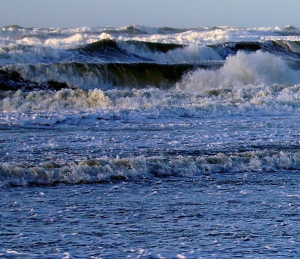What does life in the lab look like for someone in Brazil? Gustavo Assi completed his PhD at Imperial College, London, then returned to Brazil to start his own research group. While in the UK, Gustavo joined Christians in Science, and he is currently involved in setting up a similar group in Brazil (details here).
I’m a lecturer in Naval Architecture and Ocean Engineering at the University of São Paulo, which is the largest University in Brazil. I’m also on the leadership team of a Presbyterian church in São Paulo, where I spend time teaching both adults and teenagers.
I’m an experimental hydrodynamicist, so I work in the lab and get my hands in the water, understanding and analysing natural phenomena. I also have to be very practical, coming up with engineering solutions that are useful for people, and address current problems.
My most recent work involved building a recirculating water channel (similar to the wind tunnel that aeronautical engineers use, but with water instead of air). I made a large flume with water circulating around it, then I added models of ships and oil platforms, and I get to play with them! The water flows inside glass walls, so we can visualise the flow around these structures using lasers and other high-tech toys. It’s a very expensive toy… It’s also a useful teaching tool. I love what I do as a researcher – it fascinates me. I enjoy the lab and spending time there, and I’m starting to build my research group now.
In Brazil, it wouldn’t usually be a problem to think that a scientist could be a believer, which is good. But the awareness that people have on science-faith matters is much lower in Brazil than it is in the UK. In the academy, there are very few real atheists. If you asked them, most people would say “I believe there is some divine, superior being”. If you asked if they have ever had a spiritual experience, or if they’ve somehow experienced God, most people would say “Yes”. On the other hand, most will think that spirituality is irrelevant for what they do in the university, because they see it as a completely separate area of their lives. My aim is to try to raise awareness that science and faith cannot be separated in different compartments, and then to work with the issues that come from that.
For me, my faith affects everything I do, so it brings a sense of purpose to my research as well. People who have the vocation for exploring things normally get inspired by what they discover, but for me there’s more than just inspiration. There is awe and admiration. And then there’s an ultimate purpose in understanding all these things. I can see how the water flows around a ship, how this changes the pressure field, and how we can use this information to change the drag of the ship. This technology can help people travel further, and cheaply. Of course these are things that motivate me and others, but I can see a higher purpose for doing that.
In engineering we always have to be concerned with real applications. It’s nice to investigate something for the sake of it, but in the end, in engineering we have to make it useful for society. My Christian mindset, means that I want to make useful things not just for the profit of the businesses or government departments that support my research, but I want to enhance or improve people’s lives in general, for the overall benefit of the population, and especially the poor.
I also have to think about the environment with a Christian mind. Sometimes it’s quite frustrating that as an ocean engineer, I am working on offshore oil exploration. First of all I think, “Oh come on, we are dealing with these environmental problems, and here am I helping to extract more and more oil from the sea floor!” But then on the other hand, I think “Yes, but my country really depends on this oil to grow and distribute income through the population, and I can see how in the last sixteen years since the industry developed, the poverty line has changed in Brazil.” So I think, “Am I really doing the right thing? Am I helping people? Am I helping the environment?” That’s a very difficult line for me. In engineering, these difficult questions are very much present all the time. You can’t get rid of them and you can’t ignore them altogether. As a result, now I am moving towards researching renewable energy from the ocean.
Next week: part 2 of this interview.





